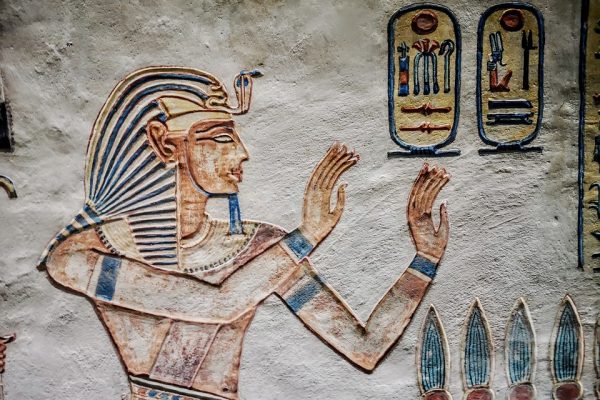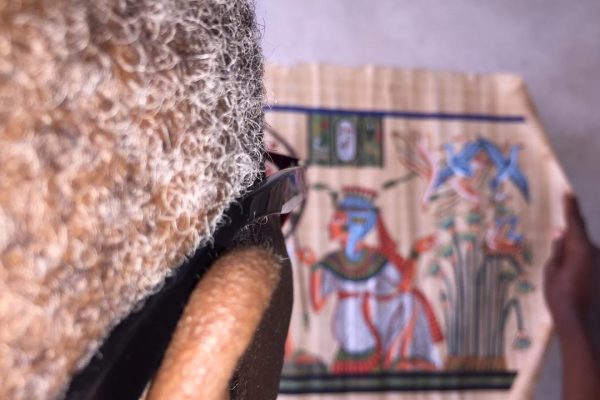According to Wikipedia, ‘primogeniture’ is defined as “the right, by law or custom, of the first-born child to inherit the parent’s entire or main estate.”
In Igala culture, inheritance rights are limited to a father’s property or title, if he held a kingship or traditional chieftaincy title before his death.
Throughout Igala kingship history, the principle of primogeniture has been breached on several occasions. At one time, a younger sibling unexpectedly ascended to the throne due to unavoidable circumstances. In another instance, an ambitious younger sibling actually manipulated the system to out-maneuver the first-born heir-apparent. There was also a rare case where such a deviation was actually unanimously agreed upon by all parties involved.
In this post, we will delve into three instances from Igala history where primogeniture was circumvented due to diverse circumstances. One of the easily cited and most notable examples concerns two sons of Ata Idoko Aganapoje, grandson of Àbùtù Ẹ̀jẹ̀, discussed as the first of the cited instances below:
- Áyẹ́gbà Instead of Átíẹ̀lẹ̀
Historical records show that after the passing of Ata Idoko during a battle north of Igalaland, his first-born son, Átíẹ̀lẹ̀, experienced a delay in arriving at Ídá, the capital, from Ánkpa, after his demise. He was, therefore, unable to assert his right to the throne. Consequently, Áyẹ́gbà, his younger sibling, possibly, due to oversight or deliberate action, was crowned instead. Átíẹ̀lẹ̀, in response, returned to Ankpa where he founded the Ògwùchẹ́kwọ̀ Royal Sub-Clan; and his influence extended to other chiefdoms within the eastern Igala region.
Protest by Siblings
According to oral tradition, other children of the late Ata Idoko were displeased with the blatant disregard for Átíẹ̀lẹ̀’s legitimate right. Responding, the late Ata’s youngest son, Ìlàmú, and another brother, Àgwùbà, fled the capital on their father’s horse. Their destination was a place called Àlòjì, situated along the present-day Itobe-Anyigba Road. The name ‘Àlòjì,’ derives from the statement: “A ló jijì,” meaning “Let us go far away,” reflecting the brothers’ burning desire to go far from home in protest.
They were pursued by a punitive party to Àlòjì; but they managed to evade capture, fleeing to Ogwugwu. They were hosted by an uncle, Ọ́kwá Òbídā who further directed them to a kinsman in Ọ̀rọ́kràmú, presently in Ìdọmàland.
- Ìdoko Instead of Ádọyí Agánápojè
Àtá Ágánápojè – who fathered three sons – was the immediate successor of his sister, Princess Àmìchí (Ébúlẹẹ́jonú), as the first male Ata-Igala, following her brief rule. He ruled till his old age before his eventual death and, Idoko, his youngest son, succeeded him. Ádọyí, his the eldest son, was not available to perform his coronation rites and inherit the throne.
Ádọyí was on a hunting expedition that often took him away from home for months on end. His immediate younger brother, Áda-ọ́kpúlú, declined the responsibility, citing his inability to leave their father’s compound as no one else was around to take care of the family. Consequently, he called on Idoko, the youngest, to go to Ídá, from Ọ́jaina in the suburb, to undergo the coronation rites.
- Ónú Akwùmábì Instead of Ákogwu
Following the demise of Áyẹ́gbà after an eventful rule, his eldest son Ákogwu, was preoccupied with arranging a dignified burial for him. During this time, his younger brother, Ónú, took advantage of the distraction to seize the throne. Then, he stealthily went to the rear of the palace and eliminated the guard at rear gate. He, then, summoned the authorities to anoint him as the new king. He took the epithet “Ákpa-adè-àkwù-m’ákwù-bì,” meaning “The killer of the gate-keeper opened the gate,” later shortened to Ákwùmábì.
Contrary to expectations, Ákogwu responded with composure, refusing to engage in conflict with his brother. This display of maturity and restraint led to him being re-named Ákogwu, signifying “One who resisted the urge to go to war.”
Oral Ìfẹ̀ tradition has it that Ákogwu’s original name was Ádẹ́bọ (Ádú-ẹbọ – servant of a deity). He had suffered an illness, possibly polio, in his childhood, which, more or less, paralysed him in one leg. A sickly child, in those days, was kept in the premises of a shrine for the attention of a powerful deity.









